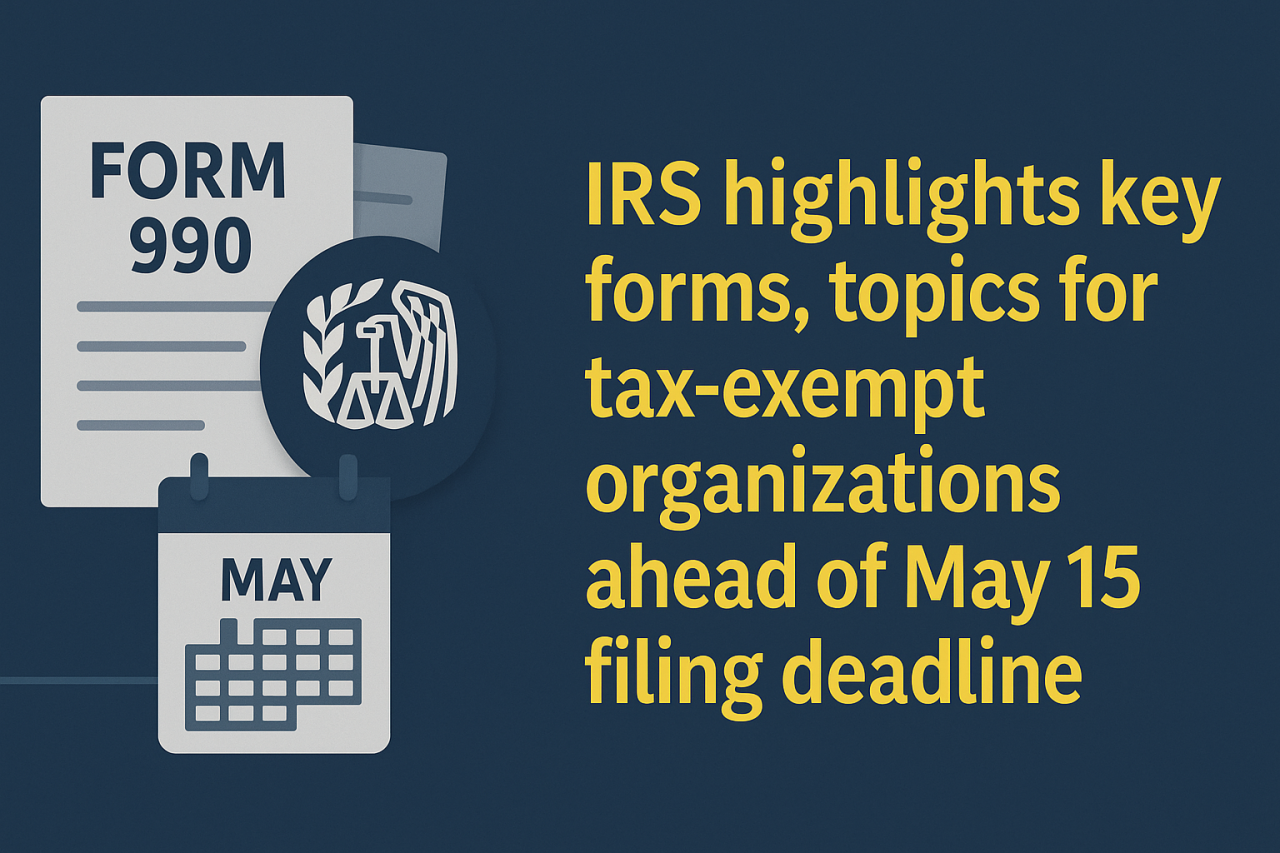The IRS encourages tax professionals to register now for the 2025 IRS Nationwide Tax Forum, coming this summer to Chicago, New Orleans, Orlando, Baltimore and San Diego.
The IRS Nationwide Tax Forum is the agency’s largest annual outreach event designed and produced for the tax professional community. This year’s curriculum features required continuing education sessions on tax law and ethics as well as hot topics like changes to the tax code, cybersecurity, online tools, digital assets and disaster reporting.
Enrolled agents, certified public accountants, Annual Filing Season Program (AFSP) participants and other tax professionals can earn up to 18 continuing education (CE) credits.
Locations and registration details
The following is the 2025 IRS Nationwide Tax Forum lineup:
| Location | Forum dates | Standard rate pre-registration deadline |
|---|---|---|
| Chicago, IL | July 1-3 | June 17 |
| New Orleans, LA | Aug. 5-7 | July 22 |
| Orlando, FL | Aug. 26-28 | Aug. 12 |
| Baltimore, MD | Sept. 9-11 | Aug. 26 |
| San Diego, CA | Sept. 16-18 | Sept. 2 |
Attendees who act by the June 10 early bird deadline can take advantage of the lowest registration rate of $265 per person. Standard pricing of $319 begins after June 10 and ends two weeks before the start of each forum. On-site registration is also available at a cost of $399.
Members of the following partner associations can save an additional $10 on the early bird rate:
- American Bar Association (ABA)
- American Institute of Certified Public Accountants (AICPA)
- National Association of Enrolled Agents (NAEA)
- National Association of Tax Professionals (NATP)
- National Society of Accountants (NSA)
- National Society of Tax Professionals (NSTP)
Members should contact their association directly for a Nationwide Tax Forum discount code.
Forum highlights
Attendees get more than continuing education when they attend the IRS Nationwide Tax Forum. Additional benefits include the:
National Tax Forum Expo Hall – Each IRS tax forum features a two-day expo with representatives from the tax, banking and business communities offering products, services and expertise with the tax professional in mind. Inside the exhibit hall, attendees can also visit the IRS Zone to meet experts from areas such as customer accounts and enforcement. IRS staff will also demonstrate new features on IRS Online Accounts and take attendee feedback.
Digital Account Services Room – Tax professionals can get help creating an IRS Online Account, resolving issues with their preparer tax identification number (PTIN) or Centralized Authorization File (CAF) and more. Appointments will be available on location.
Scams & Schemes Panel Discussion – The Council for Electronic Revenue Communication Advancement (CERCA) and the IRS will host a presentation that will better equip tax pros to protect themselves and their practices with the latest on identifying and avoiding tax scams.
Special pre-forum events
Practice Management – On Mondays at 5 p.m., IRS partners from the NAEA, NATP, NSA, NSTP and Padgett Business Services will present ideas on how new and established tax professionals can attract and manage their customers, increase productivity and have a more satisfying work-life balance.
Annual Filing Season Refresher – Also on Mondays, IRS association partners will offer an optional Annual Filing Season Refresher for participants in the IRS Annual Filing Season Program.
Registration information
For more information, and to register online, visit Nationwide Tax Forum.
Source: IRS-2025-62, May 27, 2025










